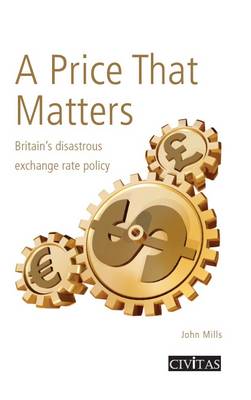Since the 1970s, free-market orthodoxy has dominated British monetary policy. Economists claim that the price of the pound on foreign exchanges cannot have a significant impact on UK jobs or economic growth, and that all that monetary policy can achieve is a low but steady rate of inflation. This has allowed the pound to maintain and even boost its value relative to other currencies. This policy has been a great boon to financial services that have benefited from a strong pound and the willingness of foreign investors to store their capital in the UK. But in this dogma-shattering report, heterodox economist John Mills shows that abandoning exchange rates for inflation targets has been a mistake. It has forced up the relative price of British exports. British manufacturing has become less competitive even as entrepreneurial rivals in the Far East have aggressively undervalued their currencies to keep their economies growing. The result has been a widening balance of payments deficit. Britain can no longer pay its own way in the world, resulting in ballooning public and private debt.
Mills argues for an exchange rate target to replace our inflation target and an aggressive devaluation of the pound on world markets. He estimates that a 10 - 15 per cent devaluation would be sufficient to close our trade deficit, a 20 - 25 per cent devaluation would return Britain to four per cent annual growth, and a devaluation of 40 - 50 per cent would bring our growth trajectory in line with China's. The recession has shaken Britain's trust in financial services as a long-term engine of prosperity: there is now a widespread understanding that robust economies must be secured on a manufacturing base. This report shows how this can only be achieved with a monetary policy designed to benefit exporters, rather than bankers.
- ISBN13 9781906837372
- Publish Date 16 April 2012
- Publish Status Out of Print
- Out of Print 14 June 2021
- Publish Country GB
- Imprint Civitas
- Format Paperback
- Pages 48
- Language English
